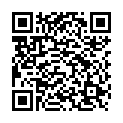|
|
|
| Module code: FTM-ENT |
|
|
3V (3 hours per week) |
|
3 |
| Semester: 1 |
| Mandatory course: no |
Language of instruction:
German |
Assessment:
Project with final presentation
[updated 25.05.2021]
|
FTM-ENT (P242-0102) Automotive Engineering, Master, ASPO 01.04.2021
, semester 1, optional course
FTM-ENT (P242-0102) Automotive Engineering, Master, ASPO 01.04.2023
, semester 1, optional course
|
45 class hours (= 33.75 clock hours) over a 15-week period.
The total student study time is 90 hours (equivalent to 3 ECTS credits).
There are therefore 56.25 hours available for class preparation and follow-up work and exam preparation.
|
Recommended prerequisites (modules):
None.
|
Recommended as prerequisite for:
|
Module coordinator:
Prof. Dr. Jörg Hoffmann |
Lecturer: Prof. Dr. Jörg Hoffmann
[updated 20.12.2021]
|
Learning outcomes:
After successfully completing this module, students will be familiar with the challenges connected to a problem-oriented development approach and will be able to analyze and evaluate them.
They will be able to evaluate and derive an economic enterprise from this approach.
In addition, they will be familiar with modern alternative development approaches, such as the Design Thinking Process or the Blue Ocean Strategy, and will be able to merge these with the problem-oriented development approach.
They will be able to create practice-oriented pitch decks and business plans.
Students will have a general overview of the basics of business administration and project management, as well as various tools for entrepreneurship in engineering, and will be able to assess and apply their areas of application and potential.
[updated 25.05.2021]
|
Module content:
Innovation management (Innovation strategies, impulses for innovations, innovation processes)
Generating ideas/concepts according to the principle of Design Thinking/ Design Sprint process, basics of Systematic Incentive Thinking (SIT) and the Ikigai concept, insight into the problem-oriented development approach in engineering.
Market and competitor analysis
Developing a cost model (design to cost)
Developing a business model
Principles of the institutional role model (economic and technical roles)
Corporate financing
Types of and the significance of entrepreneurship
Principles of starting a business
Establishing and expanding a company
Basics of personnel management and leadership
Basics for the development of marketing and sales strategies
Market entry, marketing and positioning
Company exit
Conducting lessons learned sessions
[updated 25.05.2021]
|
Teaching methods/Media:
Lecture with labs and workshops
[updated 25.05.2021]
|
Recommended or required reading:
Alexander Osterwalder, Yves Pigneur et al.: Business Model Generation: Ein Handbuch für Visionäre, Spielveränderer und Herausforderer
Vanja, S. (2019), CAx für Ingenieure: Eine praxisbezogene Einführung
Michael Lewrick, Patrick Link, Larry Leifer et al.: Das Design Thinking Playbook: Mit traditionellen, aktuellen und zukünftigen Erfolgsfaktoren
Hauschildt, J., Salomo, S., Schultz, C., & Kock, A. (2016). Innovationsmanagement. Vahlen.
Vahs, D., & Brem, A. (2013). Innovationsmanagement: Von der Idee zur erfolgreichen Vermarktung (4. Ausg.). Stuttgart: Schäffer-Poeschel Verlag.
Eversheim, W., Schuh, G., Integrierte Produkt- und Prozessgestaltung
[updated 25.05.2021]
|

